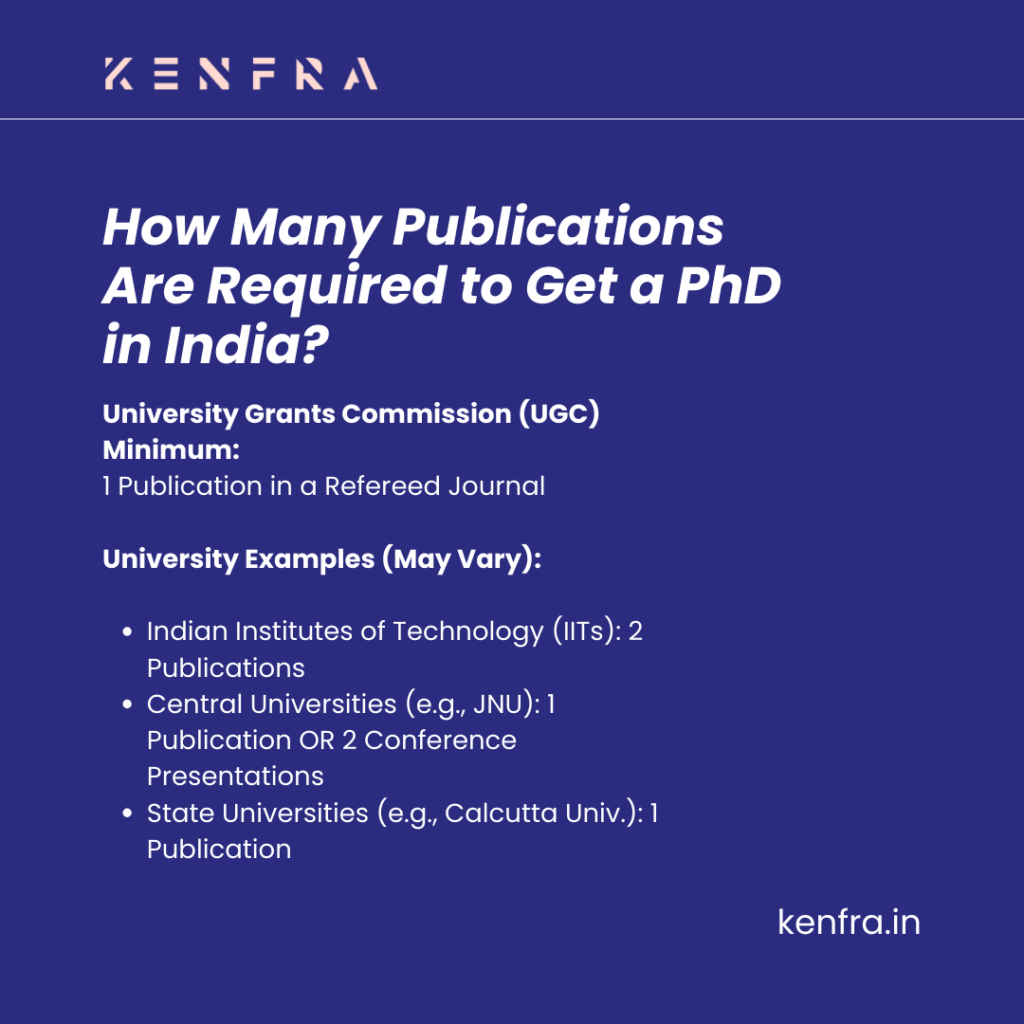How Many Publications Are Required to Get a PhD in India?
Kenfra2024-07-13T15:29:57+05:30How Many Publications Are Required to Get a PhD in India?
Pursuing a PhD in India is a journey marked by rigorous research, extensive study, and a significant contribution to your field of expertise. A crucial component of this journey is publishing research papers. But how many publications are required to get a PhD in India? This question often perplexes many aspiring doctoral candidates. In this blog, we will explore the publication requirements for a PhD in India, considering the guidelines set by various universities and the University Grants Commission (UGC).
Understanding the UGC Guidelines
The University Grants Commission (UGC) of India sets the standards and guidelines for higher education, including PhD programs. According to the UGC’s regulations, a minimum of one research publication in a refereed journal is mandatory for the submission of a PhD thesis. This regulation aims to ensure that doctoral candidates contribute original and significant research to their respective fields.
University-Specific Requirements
While the UGC provides a general framework, individual universities in India may have their own specific requirements regarding publications. Here are some examples:
Indian Institutes of Technology (IITs)
IIT Delhi: PhD candidates are required to publish at least two research papers in reputed journals before submitting their thesis.
IIT Bombay: Similar to IIT Delhi, candidates need to have a minimum of two publications in peer-reviewed journals.
Central Universities
Jawaharlal Nehru University (JNU): At JNU, candidates must have at least one publication in a refereed journal or present two papers in conferences.
University of Hyderabad: PhD candidates are required to publish one research paper in a refereed journal before thesis submission.
State Universities
University of Calcutta: Requires at least one publication in a peer-reviewed journal.
University of Mumbai: Candidates must publish one research paper in a refereed journal or present two papers in national/international conferences.
Quality Over Quantity
It’s important to note that the quality of publications often holds more significance than the quantity. Universities and research institutions emphasize publishing in high-impact, peer-reviewed journals. Publications in reputed journals demonstrate the originality and relevance of your research, enhancing the value of your PhD thesis.
Tips for Getting Published
Here are some tips to help you successfully publish your research:
Choose the Right Journal: Select journals that are well-regarded in your field and have a robust peer-review process.
Follow Submission Guidelines: Adhere to the submission guidelines provided by the journal, including formatting, citation styles, and ethical considerations.
Seek Feedback: Get feedback from your peers, mentors, and advisors to improve the quality of your manuscript before submission.
Revise and Resubmit: Don’t be discouraged by rejection. Revise your manuscript based on reviewers’ comments and resubmit it to the same or a different journal.
Conclusion
The number of publications required to get a PhD in India typically ranges from one to two, depending on the university’s specific guidelines. However, the focus should always be on the quality of your research work. By publishing in reputable journals and contributing valuable knowledge to your field, you can successfully meet the requirements and achieve your PhD.For more information on PhD guidelines and research opportunities, visit Kenfra Research.







Leave a Reply